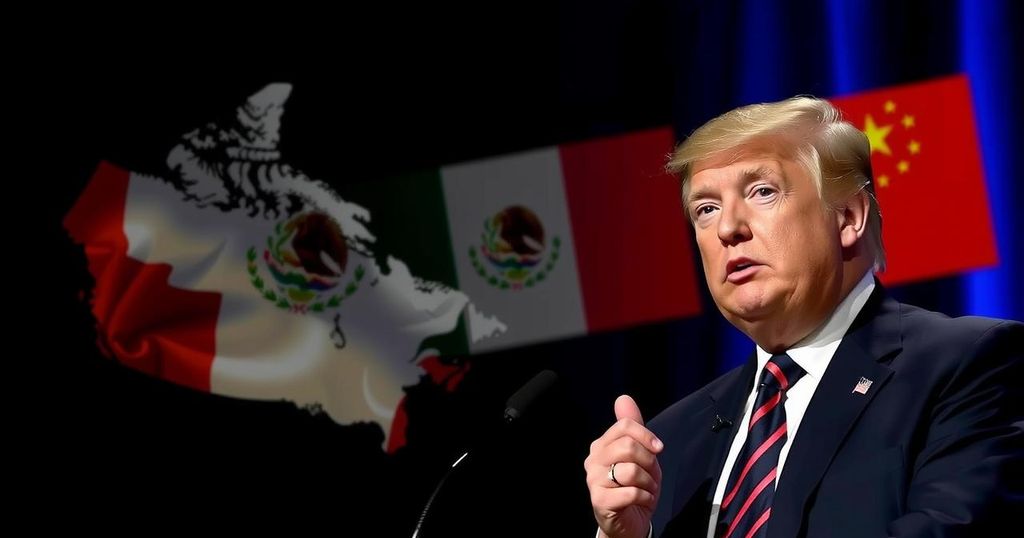Trump Proposes New Tariffs on Canada, Mexico, and China Amid Drug Trade Concerns
Donald Trump has pledged a series of significant tariffs, including a 25% tax on goods from Canada and Mexico, contingent on drug control and immigration policies. An additional 10% tariff on Chinese imports has also been proposed unless China addresses the trafficking of illegal drugs. These tariffs represent a marked increase from previous measures, with a potential impact on international trade relations.
Former President Donald Trump has announced aggressive tariff proposals targeting both Canada and Mexico, alongside deeper penalties for China. He stated that a 25% tariff would be imposed on goods from Canada and Mexico which would remain until both nations effectively curb the illegal drug trade, particularly fentanyl, as well as halt illegal immigration. Regarding China, Trump accused the country of inadequately addressing the influx of illegal drugs into the United States, proposing an additional 10% tariff on all Chinese imports until measures are taken to stop this flow. This signifies a substantial escalation as he previously declared intentions to revoke China’s most-favored-nation status and impose tariffs exceeding 60%.
The implications of Donald Trump’s tariff strategies are substantial, particularly concerning trade relations with key North American partners as well as China. His focus on drug trade control highlights a blend of foreign policy with domestic criminal justice concerns. The proposed tariffs aim to leverage economic pressure to achieve regulatory compliance from these nations. Tariff actions are typically viewed as tools of trade negotiation and can significantly impact the American economy and its consumers.
In conclusion, Donald Trump’s tariff proposals signal a robust approach to foreign trade relations, particularly with Canada, Mexico, and China. By enforcing high tariffs contingent on drug trade and immigration control, he aims to utilize economic tactics to address concerns that straddle both national security and public health issues. The potential ramifications of these policies could lead to both economic pressures and diplomatic tensions unprecedented in recent years.
Original Source: m.economictimes.com








Post Comment